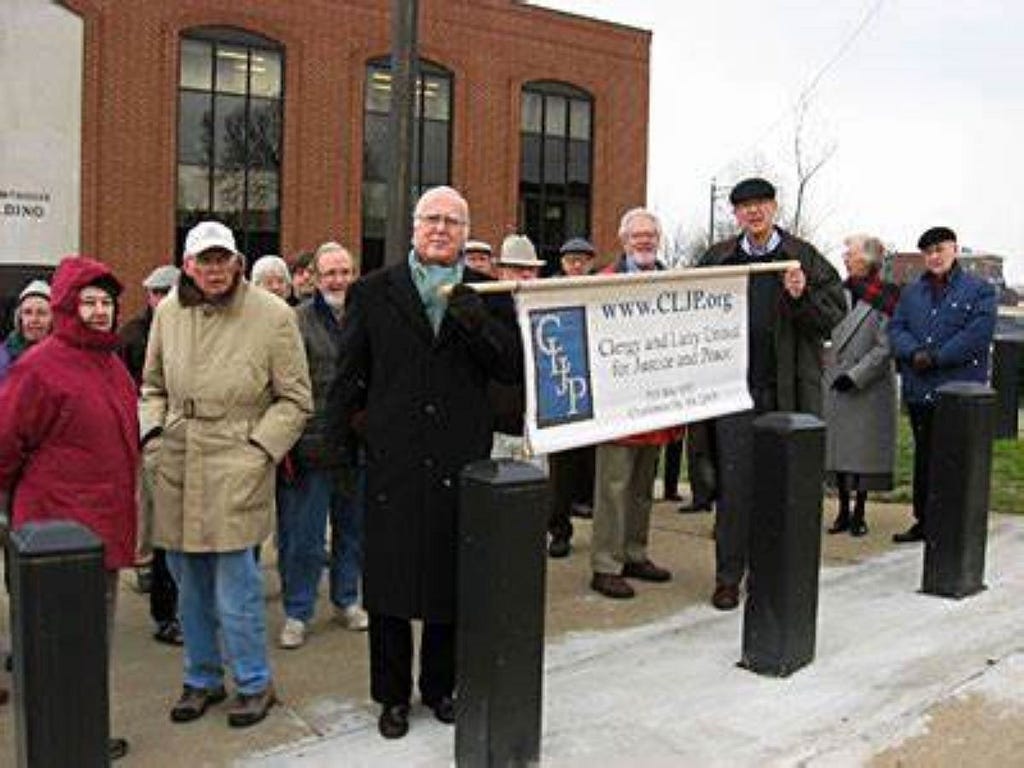Author Russ Linden: Five Things You Need To Be A Highly Effective Leader During Uncertain & Turbulent Times

Communicate the key messages but don’t overwhelm them. Respond quickly to rumors; in an absence of information, people make things up.
As part of our series about the “Five Things You Need To Be A Highly Effective Leader During Turbulent Times”, we had the pleasure of interviewing Russ Linden.
Russ Linden has been teaching, consulting with, and writing about leadership since 1985. His main areas of expertise include the human side of change, collaboration, crisis leadership, strategic thinking and resilience. His clients include major federal government agencies, nonprofits in the US and abroad, state and local agencies, and elected officials. His most recent book is Loss & Discovery: What the Torah Can Teach Us About Leading Change. In it, and previous books, he draws from historical and contemporary events and offers action steps for leaders and anyone who wants to improve work and personal effectiveness, particularly in confronting the complex problems of today. By citing familiar stories from the Old Testament, he provides insight for leading change-management initiatives. Combining his professional experience with his knowledge of the Torah, he is uniquely equipped to apply ancient wisdom with modern thinking about change during disruption.
Thank you so much for your time! I know that you are a very busy person. Our readers would love to “get to know you” a bit better. Can you tell us a bit about your ‘backstory’ and how you got started?
I was the executive director of a nonprofit that served disabled people and their families. I’d never had even an hour of management or leadership training, but somehow, we got a fair amount done, primarily because we had excellent staff.
When I decided to leave that organization, a colleague said, “Russ, you worked hard, and you did OK. Just think how much more you could’ve done if you knew what you were doing!” He wasn’t wrong. I went back to school, got a doctorate in organizational leadership, and have been teaching and writing about leadership ever since.
Can you share a story about the funniest mistake you made when you were first starting? Can you tell us what lessons or ‘take aways’ you learned from that?
It was about two years into my consulting career. I was doing a workshop on negotiation skills, and I referred to a concept from game theory called “tit for tat.” The idea is, you start a negotiation on a cooperative note, then you reciprocate whatever the other person does. If they make a combative move, or a cooperative one, you do the same.
I asked the participants what they liked about this strategy, and what worried them. To capture their reactions, I wrote “Tit for Tat” on the white board, then turned to the class and asked them to start by identifying the positives. Nobody said a word, but several started chuckling. I couldn’t understand what was so funny, until someone pointed to the white board. I turned around to see that I had instead written, “Tit for Tit.” Needless to say, I never made that mistake again.
None of us are able to achieve success without some help along the way. Is there a particular person who you are grateful towards who helped get you to where you are? Can you share a story?
My dad was my hero and mainly because he had enormous integrity. We used to say he wasn’t capable of telling a lie. There were numerous examples of his honesty, here’s one that stands out:
Dad ran a construction company that got work by submitting bids on new projects; the lowest bid usually won. Once, he was running late getting his bid in, actually driving to where bids were due. When he realized he couldn’t get there on time, he pulled over and used a pay phone to call it in. Then he heard a familiar voice talking into a nearby pay phone; it was one of his competitors, calling in his bid.
Once Dad heard the price his competitor had given, he hung up the phone. “I couldn’t offer a price once I heard what the other guy offered,” he later told me. “That would have been unethical.” I doubt there were many people in the very tough construction business who would have done what Dad did.
Extensive research suggests that “purpose driven businesses” are more successful in many areas. When your organization started, what was its vision, what was its purpose?
I started my consulting business with two overriding values: (1) always do quality work, and (2) provide first-rate customer service. I’m still committed to those values, but after a few years I learned that I needed to define what I meant by “customer service.” To me, customer service involves listening carefully to understand the client’s concerns and goals, then doing my own analysis of the situation, The result is that I sometimes tell a client that what they requested may not solve the need they identified.
For instance, a client requested a team-building session for her team. I asked why and she said, “They don’t collaborate well; I think they need to get to know each other better.” However, after interviewing members of the team, I learned they agreed they collaborate poorly, but not for the reason the boss gave. Each team member said their boss promoted them because of their individual contributions to the company. And their boss continues to give them feedback about their individual performance. So I tell my client that a team-building session wouldn’t provide the teamwork she wants. The way to change the team dynamics is for her to change her behavior. Occasionally, a client doesn’t respond well to this kind of candor, and we don’t continue working together, and that’s fine with me.
Thank you for all that. Let’s now turn to the main focus of our discussion. Can you share with our readers a story from your own experience about how you lead your team during uncertain or difficult times?
I was asked to help a city’s social services department make a huge change. They had always been organized around individual function: some worked on Medicaid, some on job training, some dealt with child abuse, some with foster care. They loved being specialists in their own area, but the best practice in their field was moving toward a multi-disciplinary approach, in which each staff member works with a certain number of clients and handles almost all of their needs. This holistic approach was resulting in stronger relationships with clients, and greater client self-sufficiency.
The staff understood the rationale for this approach, but they were upset. They worried about losing their identity (“I’m a foster care expert”); they worried about dealing with so many programs (“Am I up to this?”). To help them deal with such a huge change I suggested we hold a “wake,” giving the staff a safe place to mourn what they were losing, talk about it, and move on. We met, lit a candle, and they discussed their concerns; the manager shared that she understood the staff’s concerns. After a full hour, the staff indicated that all of their worries had been aired, and that they felt heard.
The change took months to implement, it wasn’t easy, but most of the staff handled it far better than they thought they could. Many of them mentioned the “wake” as a key step in their acceptance of the change.
Did you ever consider giving up? Where did you get the motivation to continue through your challenges? What sustains your drive?
I was extremely frustrated with one consulting project with a large federal agency that asked me to help them make a major change in their culture. Six months after a great start, things slowed down. The teams I worked with weren’t surprised or disappointed; they never expected their work to be approved by senior leaders. And I was getting worn down by the huge amount of cynicism in the agency.
I talked with a senior leader, who said he loved the cynics! He said, “When you scratch a cynic, you find underneath a very frustrated idealist. These folks still believe, but they’ve hit so many bureaucratic walls that they put on a cynical air, which keeps them from getting frustrated again. I’ll work with a cynic any day because they still care, they still want change.”
I hung on for another 18 months as only a few changes got implemented. Four years later I learned that a different agency head implemented several of our proposals. It reminded me of any old saying, sometimes attributed to Winston Churchill: “Failure isn’t fatal. It’s the courage to continue that counts.”
I’m an author and I believe that books have the power to change lives. Do you have a book in your life that impacted you and inspired you to be an effective leader? Can you share a story?
Absolutely! Leadership on the Line, by Heifetz and Linsky is the best book I’ve read on leadership and change. Two of the most useful points:
- People don’t necessarily resist change, they resist loss. And most changes involve some level of loss. The social service staff I mentioned earlier loved learning and improving their skills. But they worried a lot about what they’d lose because of the huge change in their roles; that’s what needs to be addressed.
- “Listen to the words under the music.” We don’t always say what we really mean. So, leaders need to listen carefully to others, watch body language, think about the context, and maintain an attitude of curiosity.
What would you say is the most critical role of a leader during challenging times?
Communication. Leaders must communicate “current reality” — what’s happening now. Communicate the plan to deal with it. Communicate how each person/team can contribute to that plan, following their “line of sight.” And communicate your confidence in the staff to pull together and work well as a team.
When the future seems so uncertain, what is the best way to boost morale? What can a leader do to inspire, motivate and engage their team?
As I write in my book Loss and Discovery, neuroscientists have discovered that our brains are wired for certainty, predictability, and control. In a turbulent environment like we have today, those three important needs are violated. But leaders can inspire and engage their teams by inviting them to take on important tasks that meet our brain’s needs. For instance:
- Ask the team to study an organization that’s managing the turbulence well. What are they doing? How are they doing it? Could we use a similar approach here?
- Have the team identify some training they want. Ask them to invite another team that they sometimes interact with, to join them. This is a win-win; both teams learn new skills, and they’ll have time to strengthen relationships and learn new ways to work together.
What is the best way to communicate difficult news to one’s team and customers?
It depends on what the news is: Are staff being laid off? Will customers no longer receive the level of service they are used to? Will a promising new project be shelved because of technological problems?
In general, the best way to communicate difficult news to others is to be candid, don’t sugar coat it, and tell them face to face. Assuming that the employees aren’t responsible, make that clear. And let your humanity show. If you’re disappointed about what’s happened, express that. If there’s some hope that the problem will be remedied soon, tell them you’ll share any potential good news if and when you hear it.
Finally, ask the people to share what they heard you say. Bad news can temporarily scramble our brains, and you may need to repeat some things to ensure it got through.

How can a leader make plans when the future is so unpredictable?
This is truly difficult. Fortunately, there’s a method to use that makes a lot of sense:
- Keep the goals general, and relatively short term (3–9 months in most cases)
- Create a short-term plan for each goal. Work the plan in short increments:
- Plan a little
- Implement a little
- Fix a little
- Plan a little more.
This iterative process is similar to what’s used in an approach called agile software development.
Is there a “number one principle” that can help guide a company through the ups and downs of turbulent times?
Great question. In turbulent times, organizations need to focus on what’s at their core, while at the same time being flexible on everything else. At 3-M, as an example, the core includes continual innovation and collaboration. The U.S. Marines’ core values are honor, courage and commitment.
What is at the core of your organization, something that should always be protected when disruptive change hits? Whatever it is, protect it as you adapt to changing times.
Can you share 3 or 4 of the most common mistakes you have seen other businesses make during difficult times? What should one keep in mind to avoid that?
- Under communicating. When things get tough, employees need assurance that leaders have a plan to get them through it. That requires frequent communications using different methods (all-hands meetings, email, small group sessions, organizational newsletters, etc.). As I emphasize in my book Loss and Discovery, when it comes to dealing with difficult times, it all starts with communications.
- Making overly optimistic projections. Leaders often under-estimate the difficulty posed by disruptive change and create unrealistic expectations for employees. The truth is, most employees can handle bad news, appreciate candor, and want to know what they and their team can do to help.
- Having perfectionist tendencies. Most of us aren’t at our best during disruptive times, and we need to give each other the benefit of the doubt when mistakes occur (unless it becomes a pattern with someone). Demonstrate confidence that the organization can get through this together if everyone supports everyone else.
Here is the primary question of our discussion. Based on your experience and success, what are the five most important things a business leader should do to lead effectively during uncertain and turbulent times? Please share a story or an example for each.
- Clarify priorities. Keep the list short (4–5, max)
- Offer a “line of sight,” giving each person an understanding of how their work connects to the priorities
- Emphasize relationships: check in with staff often; make it safe to discuss issues they’re facing
- Highlight people’s strengths to make them most productive; keep their weaknesses irrelevant
- Communicate the key messages but don’t overwhelm them. Respond quickly to rumors; in an absence of information, people make things up
Can you please give us your favorite “Life Lesson Quote”? Can you share how that was relevant to you in your life?
“You know more than you think you do” was the first sentence in Dr. Benjamin Spock’s first book about parenting. Spock was empowering women to trust their intuition and life experience, a radical notion in the 1940s. I’ve adapted this quote to my work, as, “You can be more than you think you can.”
It’s meaningful to me because my mother acted on this notion in all of her relationships. She looked and talked about people’s strengths, and this made them at their best when they were with her. That’s been my experience — at work and with friends and family. Be relentlessly focused on the good in people, and you’ll both be delighted with the results.
How can our readers further follow your work?
Facebook.com/whatthetorahcanteachus
This was very meaningful, thank you so much! We wish you continued success!
Author Russ Linden: Five Things You Need To Be A Highly Effective Leader During Uncertain &… was originally published in Authority Magazine on Medium, where people are continuing the conversation by highlighting and responding to this story.
